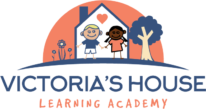
Hello Friend!
I’ll start this post with a challenge: First, think about your expectations for your little one. Next, try to answer this question: Are your expectations in line with what your child is physically, cognitively, emotionally, socially, and linguistically, capable of?
How would you know? Why does it matter?
Resist the Urge to Compare
Sometimes parents can become unfairly frustrated with themselves or care providers when they feel that their child is not learning or doing “enough”. Ask yourself:
• What is enough?
• According to what?
• According to whom?
Who cares if your cousin’s son started walking at 9 months? If little Lilly, your neighbor’s daughter, is reading at 19 months, then “Hurray” for her! It’s not a competition. No need to worry if your child is not doing what someone else’s child is doing. Likewise, if your child is doing something that other children are not yet doing, celebrate, but don’t make it a competition. Comparing your child’s development to the babies you know is unfair. It’s unfair to you and your precious little one. Besides, if you start that toxic behavior of comparisons now, you’ll always be comparing and coming up short. That downward spiral is never worth it!
What your child should be doing right now is healthily developing their brain and body. You can know if they are on track or delayed by utilizing the informational handouts that your pediatrician gives at your well-child appointments. You can also use the CDC’s milestone tracker app to help keep you up to speed.
Let Milestones Be Your Guide
The yardstick for your child is not another child or even a whole group of his or her peers. We use developmental milestones as a guideline to give us some insight into what we can expect and what we can do to support our child’s early development and education. But even milestones are not the sovereign law of how your child will develop. You will see that over time, every child will be either at the top, in the middle, or below the average in some area. We are not yet producing superhumans, so this is normal!
Remember all of this when you are deciding on daily routines or searching for childcare. When we want the best for our children, we can be quick to identify the perfect care environment to catapult our child to genius or prodigy status. But that’s not required or necessary. When searching for group childcare, resist the urge to demand Latin language courses for your 3-year-old! Trust me, learning to share, self-regulate, be kind, communicate clearly, and independent toileting skills are more critical than learning Latin. You can always teach them that at home.
sic parvis magna*
This is what to look for when searching for a healthy childcare setting:
• Is the care provider well-versed in the needs of the developmental groups they are serving?
• Does the physical environment meet my child’s current and upcoming developmental needs?
• Is the environment set up for safe learning and exploration?
Adjust your expectations for what is developmentally appropriate and necessary. Accurately doing so will help give you peace of mind and guide your child seamlessly through their early development years.
Follow Up with Your Childcare Provider
Finally, you and your child’s childcare provider are a team. Keep the communication lines open and work together. Ask them these questions to better understand your child’s experience with them:
*What are some things you and <your child’s name here> do together each day?
*What things does <your child’s name here> like to do during the day?
*Is there anything that <your child’s name here> does or does not do that concerns you?
Have a great week!
*Greatness from small beginnings
